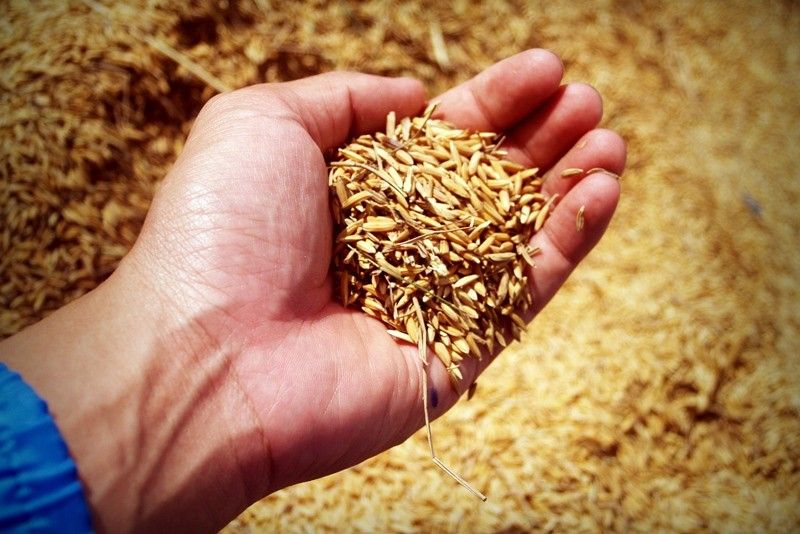COA calls out PhilRice for low seed production

MANILA, Philippines — The Commission on Audit (COA) has frowned at the Philippine Rice Re search Institute’s (PhilRice) performance in 2017 after it failed to meet its target production rate for high-quality seeds, “which may have a negative effect in the country’s bid for rice self-sufficiency.”
COA’s annual audit report on PhilRice said of the 1,440 bags of breeder seeds (BS) that the institute submitted to the National Seed Quality Control Services (NSQCS) during the wet and dry seasons of 2017 for quality assessment, only 47.22 percent or 680 bags passed the breeder seed classification.
The COA said this was way below PhilRice’s 70-percent BS production efficiency target for 2017.
The BS are the initial seeds obtained from individual plants of a particular variety and serves as basis for all further seed production.
The COA noted that the “varietal purity” of the subsequently multiplied foundation seeds (FS), registered seeds (RS) and certified seeds (CS) largely depends on the quality of the originating BS.
Records obtained by COA from the NSQCS showed that of the 1,440 bags of BS submitted for quality assessment, 360 bags were downgraded to FS, 178 bags to RS and 139 bags to CS.
COA also found that 83 bags were rejected due to various reasons such as low germination, excessive presence of other varieties, high inert matter and high weed seed.
The PhilRice’s Plant Breeding and Biotechnology Division (PBBD) was tasked to oversee the BS production, while the business and development division (BDD) was assigned in the production of the FS and RS.
The COA said that while there was considerable improvement in the quantity of BS produced by PBBD in 2017 as compared to 2016 when it only posted a 39.4-percent efficiency rating, “the division still failed to meet the Institute’s own efficiency target for 2017.”
The audit body attributed the low production rate to PhilRice’s failure to provide the PBBD with its own seed drying and seed processing facilities.
“While going to the PBBD during harvest season, the first thing that will greet the visitors was the net bags of breeder seeds being sun dried along the road in front of the PBBD building,” the COA report read.
The COA noted that the BS being sun dried along the road were just a couple of feet away from passing vehicles and that some of the net bags opening were not even properly closed exposing the seeds to contaminants.
“The site was a little frustrating as the PhilRice, being the premiere agency that is tasked to develop a modern approach to farming, should at least have its own open space that is solely intended for drying its most precious breeder seeds,” COA added.
The COA said the chief of the PBBD admitted to the audit team that aside from the lack of drying facility, the division is also reeling from the lack of its own seed processing facility as the existing facility inside the PhilRice compound prioritizes the processing of seeds from the Research Division.
“Note that these breeder seeds’ certification is the hardest to pass, a single speck would certainly cause the lots’ failure. It is therefore necessary for these seeds to be cleansed as soon as possible after harvesting and before storage to avoid quality deterioration,” the COA said.
The audit body said the institute also failed to meet its target production rates for the FS and the RS, “resulting in the Institute’s failure to adequately supply the demands of its accredited foundations and registered seed growers.”
Data gathered from NSQCS also showed that the PhilRice only achieved production efficiency ratings of 69.1 percent and 87.12 percent for FS and RS, respectively, from its 2017 target efficiency ratings of 90 percent for FS and 92 percent for RS.
The COA said that aside from the lost income for failure to cater to demands of an already captured market of seed growers, the downgraded quality of seeds has deprived the farmers of the benefit of an increased harvest “especially during these days when we are experiencing rice shortage.”
Failure to complete Palayamanan
In the same audit report, the COA put PhilRice to task for failure to complete the implementation of the P16-million Palayamanan Plus Project, which aimed to promote a diversified rice-based farming system to increase farmers’ productivity and profitability.
The project was supposed to be implemented in 2014 and 2015 with a funding of P8 million per year from the Department of Agriculture-Bureau of Agricultural Research (DA-BAR).
The COA noted that since the memorandum of agreement (MOA) between the DA-BAR and PhilRice was signed only on March 17, 2014 and the release of funds only started on May 13 of the same year, the completion of the project was extended until December 2016.
“Unfortunately, despite the extension and the lapse of more than 15 months after that, the project remained partially implemented,” COA said.
The project has four components: diversification of crop production with rice as main component with the inclusion of various cash crops, including vegetable and root crops; livestock integration to transform nutrients between animals and crops; mushroom production to maximize the available rice straws, and organic fertilizer production.
But COA said the community-based Palayamanan sites in Guagua, Pampanga; Maria Aurora, Aurora; and San Rafael, Bulacan failed to build the required mushroom houses due to PhilRice’s failure to provide the needed supplies and materials.
“Furthermore, up until the first quarter of CY 2018, the construction of these mushroom houses was not yet finished due to the absence of materials that were supposed to be provided from the project’s fund,” COA said.
The COA said that due to the lack of pre-established mushroom houses, 1,500 mushroom fruiting bags that were distributed in 2015 did not produce as expected.
The COA said the distance and delivery conditions were not taken into consideration in the procurement of livestock and poultry, as a majority of the procured piglets, goats and ducklings were already weak upon delivery in the project sites. The COA said most of the animals died within days upon delivery.
As for the vermicomposting component of the project, the COA said that although the composting beds were already constructed in all sites visited by the audit team, except in Guagua, Pampanga “same were never utilized as the needed earthworms were not procured/delivered by the Institute.”
The COA noted that as of Dec. 31, 2017, PhilRice has yet to liquidate P5.905 million of the P16-million fund for the project.
- Latest
- Trending



























